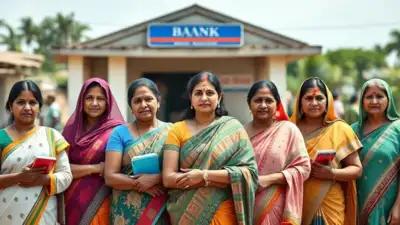Women's Growing Financial Independence in India
According to a recent government report, women now own 39.2% of all bank accounts in India, with an even higher percentage of 42.2% in rural areas. This data, released by the Ministry of Statistics and Programme Implementation (MoSPI), highlights the increasing economic participation of women across the country.

Key Findings from the Report
The report, titled "Women and Men in India 2024: Selected Indicators and Data", provides a comprehensive overview of gender-related indicators. It covers areas such as population, education, health, and economic participation, drawing data from various government sources.
Notably, women contribute to 39.7% of the total deposits in the country, with rural areas showing a particularly strong female presence in banking.
Increased Participation in the Stock Market
Another significant finding is the rise in female participation in the stock market. From March 2021 to November 2024, the number of DEMAT accounts held by women increased from 6.67 million to 27.71 million, marking a substantial growth in female investors.
Advancements in Entrepreneurship and Education
The report also notes a steady increase in female-headed businesses and startups recognized by the DPIIT. In education, the Gender Parity Index (GPI) remains high, indicating strong female enrollment at primary and higher secondary levels.
Political Participation and Workforce Engagement
Female voter turnout reached 67.2% in 2019, slightly declining to 65.8% in 2024. However, the gender gap in voting has narrowed. Additionally, the Labour Force Participation Rate (LFPR) for women has risen from 49.8% in 2017-18 to 60.1% in 2023-24, signaling improved workforce engagement.
This report serves as a vital resource for understanding the progress and challenges in achieving gender equality in India, aiming to support the development of inclusive policies.






Comments